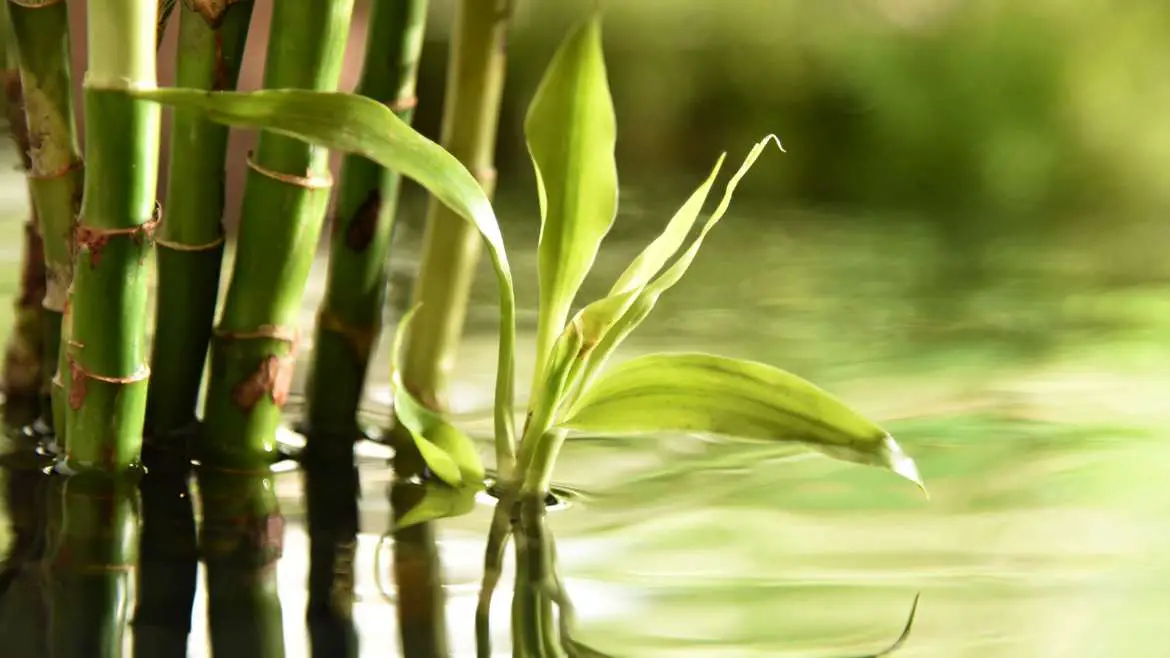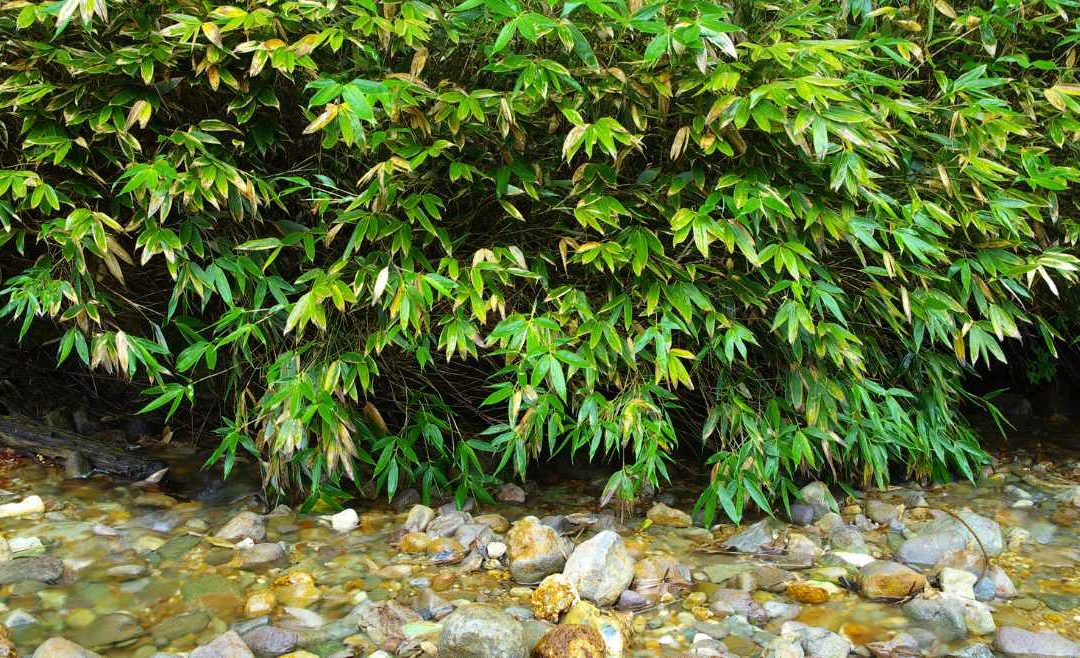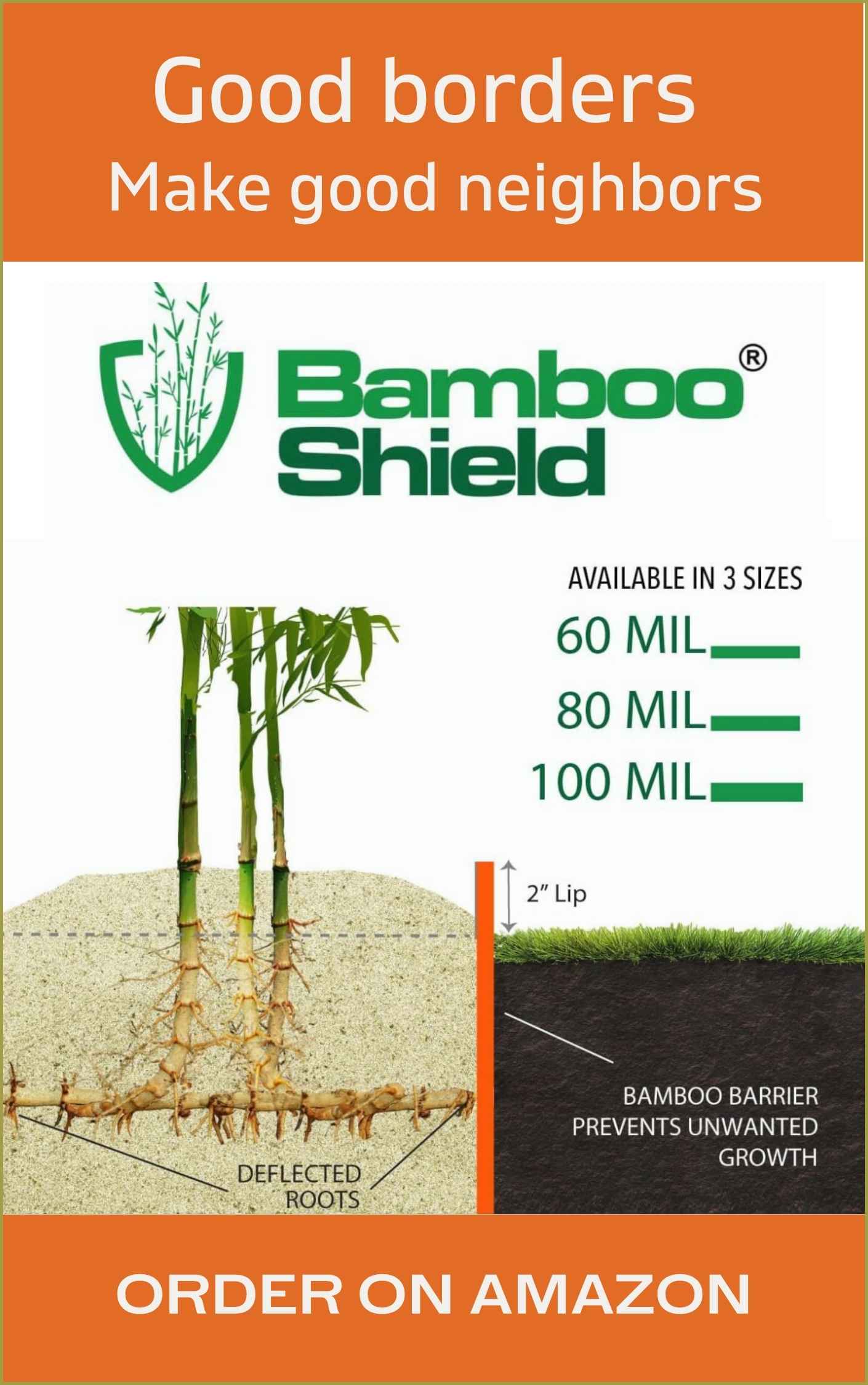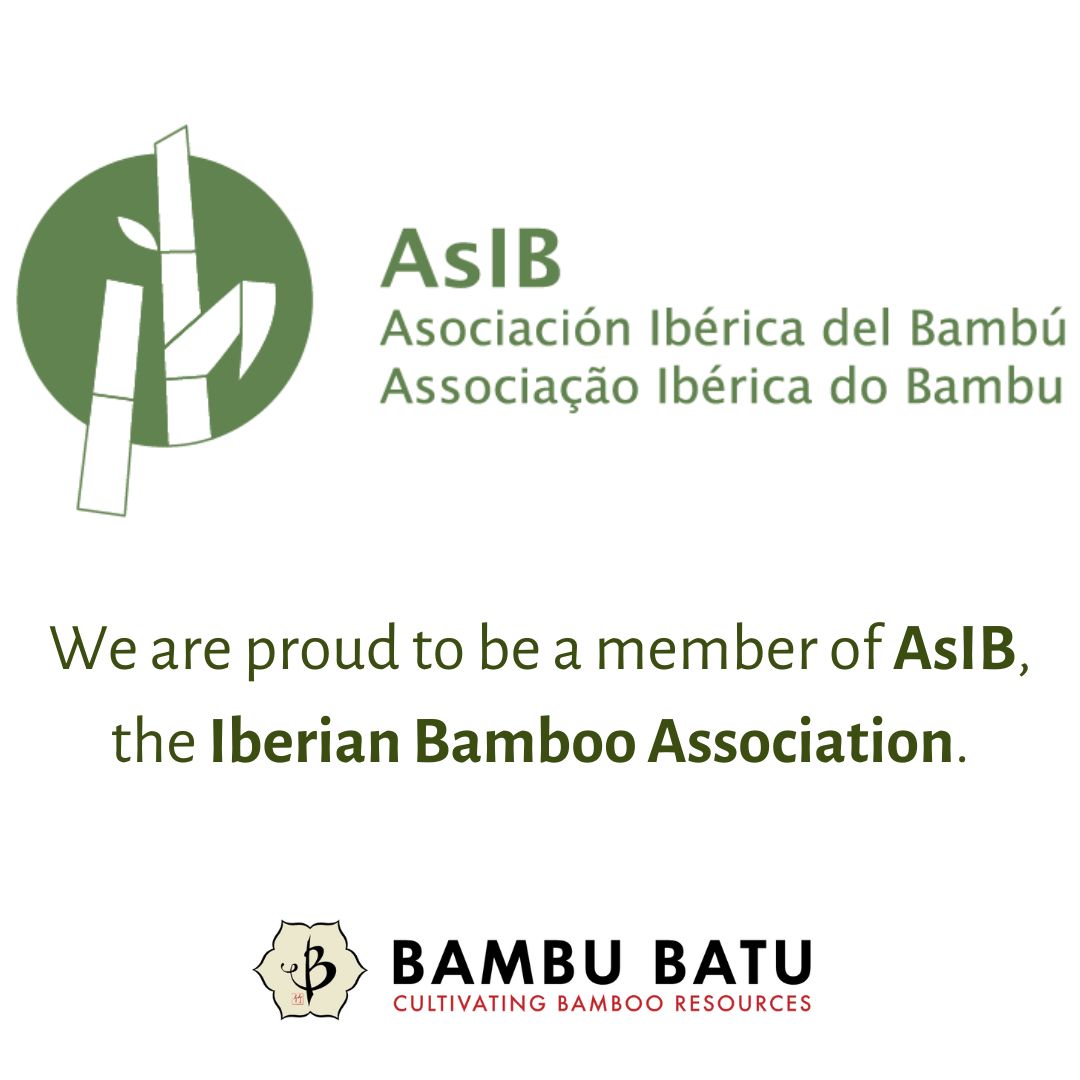If I were to start a list of all the benefits of bamboo cultivation, I would probably end up writing a whole book. As a matter of fact, I basically already have. The volumes of bamboo-related articles I’ve posted on this website could easily fill an encyclopedia. Bamboo is “Soft on the Skin and Good for the Soul,” as our tagline has proudly proclaimed. Bamboo is also renowned for its ability to capture carbon, clean the air, and preserve our forests. And today we’re going to talk about how bamboo can clean contaminated water.
Bamboo’s robust network of roots and rhizomes are the secret to this plant’s success and indestructibility. The subterranean matrix gives bamboo a relentless foothold as well as powers of erosion prevention and water purification. As water passes through this dense mesh, the bamboo roots act as a filter, drawing out toxins and impurities, thereby cleaning the water. It’s a simple, natural way to deal with polluted runoff or household gray water. Additionally, bamboo charcoal has incredible purification properties for fresher air and cleaner drinking water.
Bamboo roots as water filters
The center of bamboo’s life force lies in its vast and vigorous rhizome root network. As these tenacious roots keep the plant firmly attached to the earth, they also perform a number of other functions. They are especially effective as a carbon sink, storing CO2 as it is sequestered from the atmosphere through photosynthesis. Even when the bamboo poles (culms) are harvested, the roots survive and hang onto the CO2.
More visibly, you can see how the roots form a web-like mesh in the soil, preventing erosion and soil degradation as they cast their fibrous net. This makes bamboo a practical, beneficial crop on slopes and along waterways where erosion is most common.
Bamboo soil retention properties also make it an excellent pioneer crop. Where soil is vulnerable to erosion, seedlings have a more difficult chance of survival. By holding the topsoil together, bamboo helps other species take root and establish themselves amidst a healthier, more diverse habitat.
Finally, the root network is able to act as a filter, sifting and purifying water as it passes by and percolates through the soil. Bamboo has phytoremediating qualities, which enable it to leech some heavy metals and other contaminants out of the water. As long as the water isn’t too heavily polluted with toxic substances, the bamboo can metabolize and purify the water.
It’s not enough to make toxic runoff drinkable, but bamboo filtration will improve the quality of the water for livestock and for irrigating other food crops.
To learn more about how bamboo can be used to filter household and industrial runoff, see our detailed article about Bamboo, gray water, and phytoremediation.
Planting bamboo around waterways
Bamboo does not actually grow directly in water or saturated soil, but you can plant it close to waterways and in areas where water only passes intermittently.
(See my article on Bamboo and wetlands for more information.)
At the edge of a body of water, the bamboo will do best where the soil is moist but not soggy. Generally, the roots will grow towards the moist soil. But when they reach soggy, saturated areas, they will stop spreading. The bamboo provides a greater benefit if the water level is a foot or two below the level of the soil. This way, the topsoil isn’t over-saturated, but the ends of the roots will reach the water table for filtration and purification.
Another technique, to maximize bamboo’s capacity for water filtration without drowning the plant, is to control and regulate the flow of runoff through the bamboo grove. If there’s a way to direct the water across the bamboo patch, and then stop the flow once the roots are soaked, that will provide the best results.
You can apply this same technique when you reuse household gray water, or used water from sinks, showers and appliances. After the water trickles through bamboo’s naturally purifying root network, irrigation ditches can direct the cleaner water towards other crops.
Bamboo for Malaria control
In equatorial Africa, where Malaria affects a disproportionate number of people, they are planting groves of giant bamboo (Dendrocalamus asper). The thirsty roots of this giant grass are able to soak up stagnant, standing water that might otherwise become a fetid breeding ground for mosquitos. Planners in Malawi are using this strategy around their water pumps to make the water and the surrounding area safer.
Due to rising temperatures associated with climate change, Malaria is becoming more common in areas that previously had little or no incidence of the disease. Once again, bamboo proves to be an effective tool to alleviate the unexpected consequences of climate change.
Growing lucky bamboo in water
Many people are convinced that bamboo can grow directly in water. But they’ll be in for a disappointment when the roots get soggy and begin to rot.
Perhaps you’ve seen stalks of bamboo growing directly in a vase of water, without even any soil. This is actually what we call Lucky Bamboo. It’s an attractive houseplant that’s good for feng shui and almost impossible to kill. But it’s not bamboo.

Lucky Bamboo is actually Dracaena sanderiana, which does not belong to the grass family or the bamboo subfamily. It grows well indoors but without the amazing usefulness of woody bamboo. True bamboo needs well-drained soil and is much happier outdoors.
Bamboo charcoal for water purification
When it comes to cleansing your drinking water, there’s another means of purification for which bamboo works remarkably well.
Bamboo charcoal, although blacker than a raven’s wing, actually has incredible powers of purification and detoxification. Sticks of bamboo charcoal are available for purchase through Amazon. By submerging the charcoal in a pitcher of water for an hour or so, it leeches the impurities of your tap water and leaves you with a perfectly refreshing glass of H2O.
A wide variety of air purifying products also make use of this purification property. Such bamboo pillows are just the thing to clear the air in your refrigerator or freshen up your sock drawer.
Your source for bamboo facts
If you liked learning about the water purifying properties of bamboo, you might also check out some of these other articles about the benefits of bamboo cultivation.

























